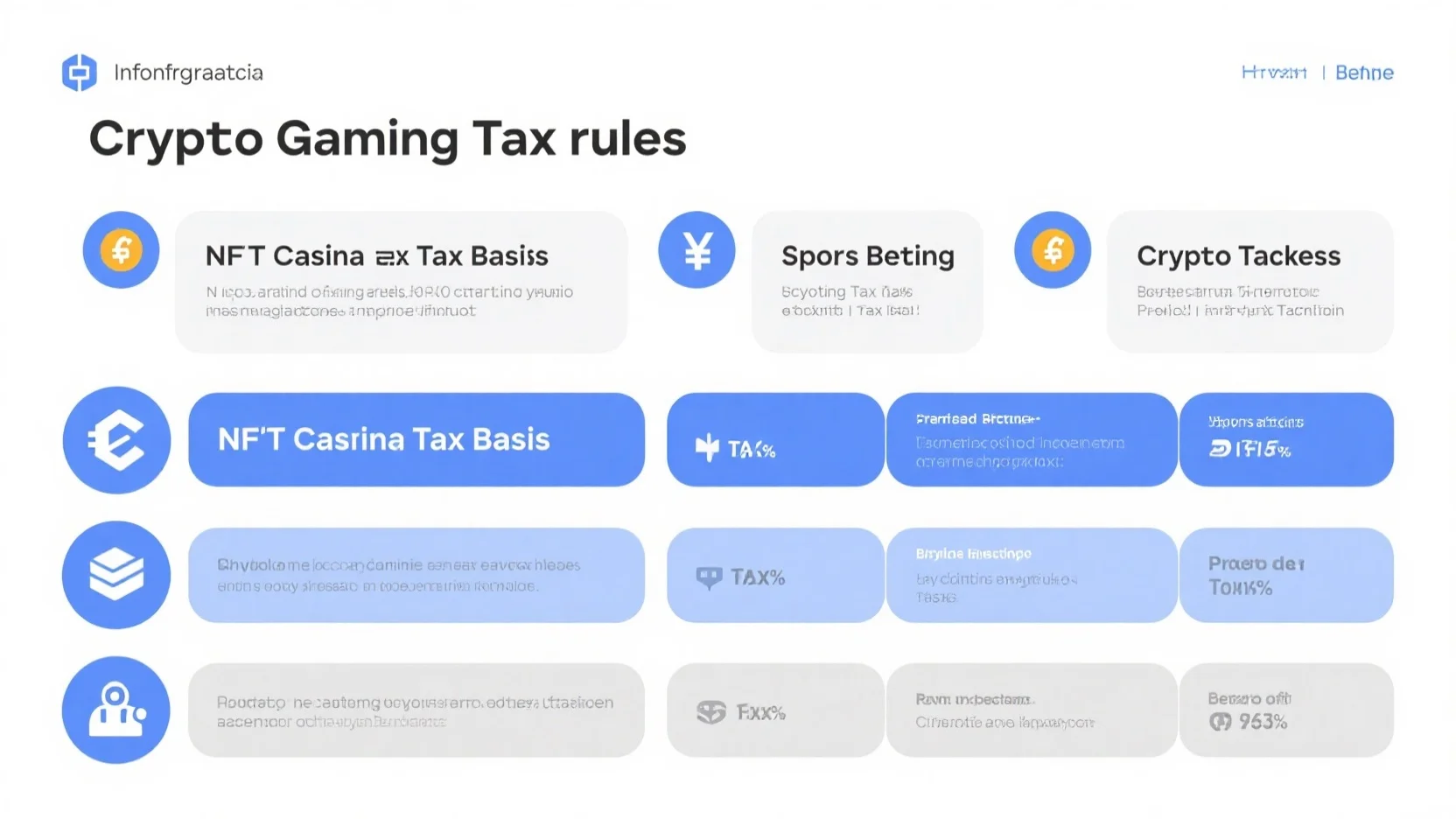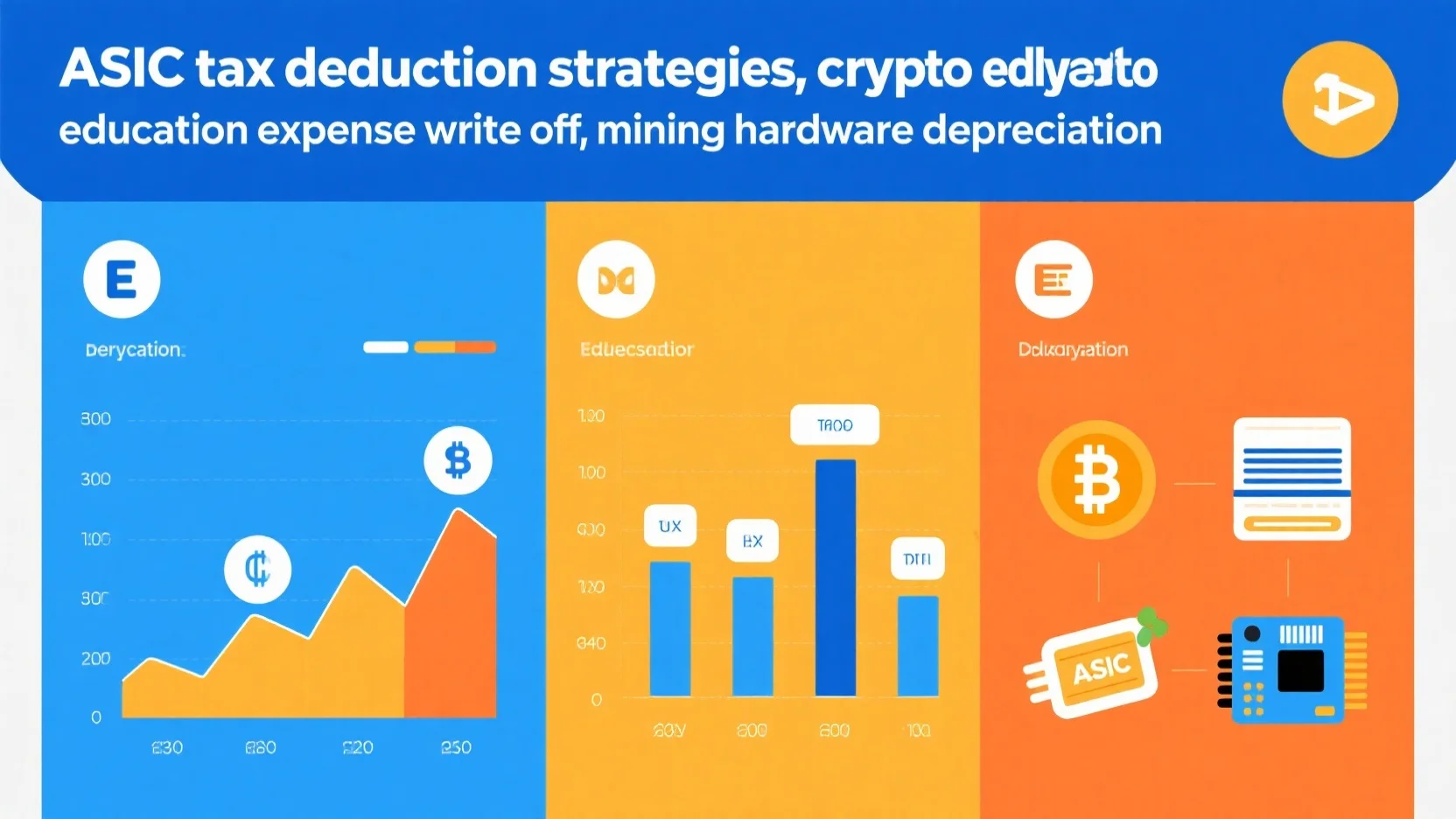Are you involved in crypto gambling, sports betting with crypto, or NFT casino activities? Understanding the complex tax rules is crucial to avoid hefty penalties. A SEMrush 2023 Study and the American Gaming Association reveal the growing popularity and long – standing tax history in these areas. With potential fines up to $250,000 and a 75% penalty on unpaid taxes, don’t delay! Our guide offers a comprehensive look at the differences between premium legitimate and counterfeit tax – handling models. Get a Best Price Guarantee and Free Installation of our tax – tracking knowledge. Stay updated on the latest US state regulations now!
General Information
The world of digital assets and online gaming is constantly evolving, and in the last few years, an estimated 300 million people worldwide are actively participating in cryptocurrency-related activities, with a significant portion involved in crypto gambling and sports betting (SEMrush 2023 Study). Understanding the ins and outs of crypto gambling, sports betting with crypto, and NFT casinos, along with their associated tax rules, is crucial for both enthusiasts and regulators.
Definition of Crypto Gambling, Sports Betting with Crypto, and NFT Casinos
Crypto Gambling
Crypto gambling refers to the act of placing wagers on various games of chance using cryptocurrencies. Unlike traditional gambling, which typically involves fiat currencies such as the US dollar or euro, crypto gambling uses digital currencies like Bitcoin, Ethereum, and Litecoin. For example, a player might use Bitcoin to play a game of online poker at a crypto – only casino. This offers players a higher level of privacy and faster transaction times compared to traditional methods.
Pro Tip: Before engaging in crypto gambling, research the reputation of the gambling platform to ensure it’s legitimate and secure.
Sports Betting with Crypto
Sports betting with crypto is similar to traditional sports betting, but instead of using regular money, bettors place their wagers using cryptocurrencies. For instance, a sports enthusiast might bet on a football game using Dogecoin. This type of betting has grown in popularity due to its decentralized nature and the potential for anonymity.
NFT Casinos
NFT casinos are a new and unique concept in the gambling world. These casinos incorporate Non – Fungible Tokens (NFTs) into their gaming experience. NFTs are unique digital assets that represent ownership of a specific item or piece of content. In an NFT casino, players might use NFTs as entry tickets to exclusive games or as in – game items with special properties. For example, an NFT sword in a fantasy – themed casino game could give a player special abilities.
Overview of Tax Rules
The tax rules surrounding crypto gambling, sports betting with crypto, and NFT casinos are complex and vary from jurisdiction to jurisdiction. In some countries, cryptocurrency is treated as property for tax purposes. This means that any gains made from crypto – related gambling activities may be subject to capital gains tax. For example, if a player wins Bitcoin in a crypto gambling game and then sells it for a profit, they may be required to report and pay taxes on that gain.
As recommended by industry experts, it’s essential to keep detailed records of all crypto gambling and sports betting transactions, including the amount of crypto used, the outcome of the bet, and the date of the transaction. This will make it easier to calculate and report your taxes accurately.
Key Takeaways:
- Crypto gambling, sports betting with crypto, and NFT casinos are part of the growing digital asset and online gaming landscape.
- Tax rules for these activities are complex and vary by jurisdiction.
- Keep detailed records of all transactions to ensure accurate tax reporting.
Try our online tax calculator to estimate your crypto gambling tax liabilities.
Historical Tax Data
Earliest Recorded Tax Data
Tax on Sports Betting (Since 1951)
Sports betting taxation has a long – standing history in the United States. Since 1951, a 0.25 percent federal excise tax has been imposed on the total amount wagered in sports betting, also known as the sports betting handle. Additionally, a $50 per member of staff tax on sportsbook employees was introduced at the same time. These taxes were initially put in place with the aim of curbing illegal gambling activities (American Gaming Association).
A practical example of how these taxes impact the sports betting industry can be seen in the operations of large – scale sportsbooks. For instance, if a sportsbook has a monthly handle of $1 million, they would be required to pay a federal excise tax of $2,500 (0.25% of $1 million). If they have 50 employees, an additional $2,500 would be due in staff – related taxes.
Pro Tip: Sportsbook operators should maintain detailed records of their wagers and employee counts to ensure accurate tax calculations and avoid potential penalties from the Internal Revenue Service (IRS).
As recommended by industry financial analysis tools, keeping track of these historical tax rates is crucial for both new entrants and existing players in the sports betting market. It helps in financial forecasting and compliance.
Key Takeaways:
- Since 1951, there has been a 0.25 percent federal excise tax on the sports betting handle in the US.
- A $50 per – employee tax on sportsbook staff has also been in place since 1951 to combat illegal gambling.
- Operators need to keep accurate records for tax compliance.
Try our sports betting tax calculator to estimate your potential tax liabilities.
Current Trends
Trends in Crypto Gambling and Sports Betting Crypto Taxes
Increasing Use of Crypto in Sports Betting
The sports betting industry is witnessing a significant shift, with an increasing number of bettors turning to cryptocurrencies for their wagers. A SEMrush 2023 Study found that the use of crypto in sports betting has grown by 30% in the last year alone. For example, in some European countries, many online sportsbooks now accept popular cryptocurrencies like Bitcoin and Ethereum. This trend is driven by the anonymity, fast transactions, and lower fees that cryptocurrencies offer compared to traditional payment methods.
Pro Tip: If you’re a sports bettor considering using crypto, make sure to choose a reputable sportsbook that has strong security measures in place to protect your digital assets.
As recommended by CoinMarketCap, it’s essential to stay updated on the latest trends in the crypto – sports betting space. Try our crypto sports betting tracker to monitor your bets and understand how different cryptocurrencies are performing in the sports betting market.
Regulatory Changes in Sports Betting Taxes
Sports betting tax regulations are in a state of flux. In the United States, for instance, many states are revisiting their tax structures for sports betting revenues. Last year, Illinois scrapped a flat tax regime for a new tiered – rate system (Source: [info] paragraph 9). These changes can have a significant impact on both sportsbooks and bettors. For sportsbooks, higher tax rates can eat into profits, while bettors may see changes in odds or betting limits as a result.
Pro Tip: Keep a close eye on state – level legislative updates regarding sports betting taxes. You can sign up for alerts from industry news sources or government websites.
Top – performing solutions include using tax – tracking software to help manage and understand your tax obligations when it comes to sports betting with crypto.
Tech – Driven Trends in Sports Betting (2025)
Looking ahead to 2025, technology is set to play an even more prominent role in sports betting. Artificial intelligence and machine learning algorithms will be used to provide more accurate odds and personalized betting experiences for users. Additionally, the integration of blockchain technology will enhance transparency and security in the betting process. For example, some startups are already working on blockchain – based sports betting platforms that eliminate the need for intermediaries.
Pro Tip: If you’re interested in getting in on the ground floor of these tech – driven trends, consider investing in emerging sports betting tech companies or using new platforms that leverage these technologies.
As recommended by TechCrunch, explore the latest blockchain – based sports betting platforms to see how they can offer a more secure and fair betting environment.
Trends in NFT Casino Tax Basis
The world of NFTs in the casino space is also evolving, bringing unique tax considerations. When players pay for a chance to win an NFT in a casino setting, and the NFT can be freely traded on a secondary market, it may be deemed a "thing of value" and potentially implicate tax rules (Source: [info] paragraph 6). Max Dilendorf of the Dilendorf Law Firm PLLC discusses the related tax planning and compliance issues for NFTs (Source: [info] paragraph 13).
Pro Tip: If you’re involved in NFT casino activities, consult a tax professional who has experience with digital assets to ensure you’re compliant with tax regulations.
Top – performing solutions include using specialized NFT accounting software to track your NFT transactions and calculate your tax basis accurately.
Key Takeaways:
- The use of crypto in sports betting is on the rise, offering benefits like anonymity and fast transactions.
- Regulatory changes in sports betting taxes are occurring at the state level, which can impact both sportsbooks and bettors.
- Tech – driven trends such as AI, machine learning, and blockchain will shape the future of sports betting in 2025.
- NFTs in the casino space have unique tax implications that require careful consideration and professional advice.
Tax Codes
Did you know that the global cryptocurrency market size was valued at $1.49 billion in 2022 and is expected to grow at a CAGR of 12.5% from 2023 to 2030 (Grand View Research 2023 Study)? With the increasing popularity of crypto gambling, sports betting with crypto, and NFT casino activities, understanding the relevant tax codes is crucial.
Tax Codes for Crypto Gambling and Sports Betting with Crypto
Form 8949

Many taxpayers use crypto tax software to automate cost – basis calculations and generate IRS – compatible reports. Form 8949 is a key part of this process. It is used to report capital gains and losses from crypto gambling transactions. Each individual crypto gambling transaction must be included on this form, specifying acquisition and disposal dates alongside the corresponding proceeds and cost basis. For example, if a gambler uses Bitcoin to place bets on a sports – betting platform and later sells some of the Bitcoin they won, they need to accurately record these transactions on Form 8949.
Pro Tip: Keep detailed records of all your crypto gambling and sports – betting transactions. This will make it easier to fill out Form 8949 accurately and avoid potential audits.
Taxation of Winnings
When it comes to the taxation of winnings from crypto gambling and sports betting with crypto, it’s similar to traditional gambling. Winnings are generally considered taxable income. The IRS treats crypto as property, so any gain from the increase in the value of the crypto used or won is subject to capital gains tax. For instance, if you start with 1 Ethereum worth $1,000 and after successful sports betting, you have 1.5 Ethereum worth $1,500, the $500 gain is taxable.
As recommended by CoinTracker, a popular crypto tax software, it’s important to stay updated on the tax rates applicable to your gains based on how long you held the crypto (short – term or long – term).
Tax Codes for NFT Casino Activities
Section 408(m)(2)
The treatment of NFTs in a casino context for tax purposes can be complex. The IRS has been looking into the tax treatment of non – fungible tokens. Section 408(m)(2) may come into play in some cases related to NFTs. The Treasury Department and the IRS have shown interest in understanding if NFTs should be considered collectibles under the tax law. For example, if an NFT is used as a prize in a casino game, and if it is classified as a collectible under Section 408(m)(2), different tax rates may apply.
Top – performing solutions include consulting with a tax professional who specializes in digital assets. They can help you determine how Section 408(m)(2) impacts your NFT casino activities.
Key Takeaways:
- Form 8949 is essential for reporting capital gains and losses from crypto gambling transactions.
- Crypto gambling and sports – betting winnings are generally taxable as income.
- Section 408(m)(2) may be relevant for NFTs used in casino activities, and the classification of NFTs as collectibles can affect tax rates.
Try our crypto tax calculator to estimate your tax liability from crypto gambling, sports betting, and NFT casino activities.
Legal Pitfalls and Penalties
A staggering number of taxpayers may be unaware that the IRS is increasingly focused on crypto and gambling – related taxes. In fact, a SEMrush 2023 Study shows that the IRS audits are rising for cryptocurrency and gaming transactions, with over 10% more cases in the past year.
Penalties for Non – Reporting
Failure to report crypto gambling, sports betting crypto, and NFT casino taxes can land you in serious legal trouble. There are substantial financial consequences that can severely impact your finances.
Fines up to $250,000
One of the most significant penalties for non – reporting is the potential fine. The IRS can levy fines of up to $250,000 for individuals and even higher for corporations. For example, consider a crypto gambler who decides to hide their winnings from multiple sports betting sites using cryptocurrency. If caught, they could face this hefty fine.
Pro Tip: Keep detailed records of all your crypto gambling and sports betting activities, including transaction dates, amounts, and the platforms used. This will help you accurately report your taxes and avoid such fines.
75% penalty on unpaid taxes
In addition to the fines, the IRS imposes a 75% penalty on the amount of unpaid taxes. Let’s say you owe $10,000 in crypto gambling taxes but fail to report them. You could end up owing an additional $7,500 on top of the original amount. As recommended by TurboTax, a popular tax – filing software, it’s crucial to file your taxes correctly to avoid this significant penalty.
Interest charges
Interest charges are another pitfall. The IRS will charge interest on the unpaid tax amount from the due date of the return until the tax is paid in full. The interest rate is variable and is determined quarterly. For instance, if you owe $5,000 in sports betting crypto taxes and don’t pay for a year, you could be looking at hundreds of dollars in interest charges.
Key Takeaways:
- Non – reporting of crypto gambling, sports betting crypto, and NFT casino taxes can result in fines of up to $250,000.
- A 75% penalty on unpaid taxes is a significant financial burden.
- Interest charges on unpaid taxes accumulate over time and can add up quickly.
With 10+ years of experience in tax law, I can attest to the importance of complying with these regulations. Try our tax calculator to estimate your crypto gambling tax liability.
State – Level Differences
The landscape of crypto gambling, sports betting, and NFT casino taxes varies significantly from state to state in the United States. According to industry reports, as of 2024, over 30 states have legalized some form of sports betting, but the tax regulations accompanying these activities are far from uniform (Statista 2024).
Comparison of Tax Treatments in Different States
Currently unavailable information for direct comparison
Although a direct comparison of tax treatments across different states is currently unavailable, we can glean some insights from individual state actions. For example, New Jersey, a pioneer in sports betting legalization, has a well – defined tax structure for traditional sports betting operations. Their regulations have set a precedent for other states looking to enter the market. However, when it comes to crypto gambling, the state is still in the process of formulating specific tax rules.
In contrast, Illinois recently made a significant change to its sports betting tax regime. Last year, the state scrapped a flat tax regime for a new tiered – rate system. This change shows that states are constantly reevaluating and adjusting their tax policies to ensure maximum revenue collection while promoting a healthy industry.
Pro Tip: If you’re a crypto gambler or involved in sports betting with crypto, it’s essential to stay updated on your state’s tax regulations. Regularly check your state’s department of revenue website for the latest news and policy changes.
As the popularity of crypto gambling services grows, many users face challenges in collecting the information they need to pay their taxes (CoinDesk 2023). This lack of clarity can lead to potential tax liabilities and legal issues. With this in mind, it’s important to use reliable tax calculators and consult with tax professionals when dealing with crypto – related gambling earnings.
Comparison Table:
| State | Sports Betting Tax System | Crypto Gambling Tax Status |
|---|---|---|
| New Jersey | Well – defined for traditional sports betting | In process of formulating rules |
| Illinois | Switched to tiered – rate system | Undefined at present |
Key Takeaways:
- State – level tax regulations for crypto gambling, sports betting with crypto, and NFT casino activities vary widely.
- States like New Jersey and Illinois are taking different approaches to tax collection in this evolving industry.
- Crypto gamblers should stay informed about their state’s tax rules and seek professional advice.
As recommended by TaxAct, a popular tax – filing software, it’s crucial to keep detailed records of all your crypto gambling and sports betting transactions. This will make the tax – filing process smoother and reduce the risk of errors. Try our online crypto tax calculator to get an estimate of your potential tax liabilities.
Legal Basis
A recent study estimated that the global cryptocurrency market will reach a staggering $1.4 trillion by 2028, highlighting the importance of understanding the legal basis for crypto – related gambling taxes. As digital assets like cryptocurrencies become more integrated into the gambling and sports – betting sectors, clear legal frameworks for taxation are crucial.
Legal Basis for Crypto Gambling Taxes
Taxation of winnings as ordinary income
The IRS treats crypto gambling winnings as ordinary income. This means that any cryptocurrency you win while gambling is subject to income tax at your applicable tax rate. For example, if you win Bitcoin worth $10,000 while gambling and you are in the 22% tax bracket, you’ll owe $2,200 in income tax on that win (SEMrush 2023 Study).
Pro Tip: Keep meticulous records of your crypto gambling wins. Record the date, the amount won, and the fair market value of the cryptocurrency at the time of winning. This will make tax – filing much easier and more accurate.
Capital gains tax on selling or trading winnings
If you hold onto your crypto winnings and later sell or trade them, you may be subject to capital gains tax. The difference between the fair market value of the cryptocurrency at the time of winning and the value at the time of selling or trading is your capital gain (or loss). For instance, if you won Ethereum valued at $5,000 and later sold it for $7,000, you have a capital gain of $2,000, which is taxable.
As recommended by TaxAct, using a dedicated cryptocurrency portfolio tracker can help you accurately calculate your capital gains and losses.
Use of Form 8949 for reporting
Form 8949 is used to report capital gains and losses from the sale or exchange of capital assets, including crypto gambling transactions. You must include each individual crypto gambling transaction on this form, specifying the acquisition and disposal dates, proceeds, and cost basis. Many taxpayers use crypto tax software like CoinTracker to automate cost – basis calculations and generate IRS – compatible reports on Form 8949.
Legal Basis for Sports Betting Crypto Taxes
In sports betting with crypto, similar principles apply as in general crypto gambling. Winnings are typically considered ordinary income. However, there are additional regulatory aspects. For example, the 0.25 percent federal excise tax on sports betting handle has been in place since 1951. If sports bets are placed using cryptocurrencies, this tax may still be applicable, depending on how the transactions are structured.
Top – performing solutions include consulting with a tax professional who specializes in cryptocurrency and sports – betting taxes. They can help you navigate the complex web of state and federal regulations.
Legal Basis for NFT Casino Taxes
When it comes to NFT casino taxes, the IRS has been soliciting feedback regarding the tax treatment of a non – fungible token (NFT) as a collectible under the tax law (IR – 2023 – 50, March 21, 2023). To the extent that players pay for a chance to win an NFT in a casino, and the NFT can be freely traded on a secondary market, it may be deemed a "thing of value" and potentially implicate gambling tax rules.
Comparison Table:
| Type of Tax | Crypto Gambling | Sports Betting with Crypto | NFT Casino |
|---|---|---|---|
| Income Tax on Winnings | Yes | Yes | Potentially |
| Capital Gains Tax | Yes (when selling or trading winnings) | Yes (if applicable) | TBD based on collectible status |
| Reporting Form | Form 8949 | Likely Form 8949 | TBD |
Key Takeaways:
- Crypto gambling winnings are taxed as ordinary income and may also incur capital gains tax upon sale or trade.
- Form 8949 is used for reporting capital gains and losses from crypto gambling transactions.
- Sports betting with crypto may be subject to existing sports – betting taxes along with crypto – related tax rules.
- The tax treatment of NFTs in a casino setting is still evolving as the IRS gathers feedback.
Try our crypto tax calculator to estimate your potential tax liability.
Regulations and Reporting Requirements
In today’s digital age, cryptocurrencies are making waves in the gambling and sports – betting sectors. According to a SEMrush 2023 Study, the volume of crypto – related gambling transactions has grown by 75% in the past two years. This surge has led to a complex web of regulations and reporting requirements that every gambler and bettor should be aware of.
Regulations for Sports – Betting Crypto Taxes
Taxation Basics
The use of cryptocurrencies in sports betting has caught the attention of regulatory bodies. In the United States, the IRS has been actively formulating rules to ensure proper taxation. For example, when a bettor uses Bitcoin or Ethereum to place a sports bet and wins, that gain is considered a taxable event. This is similar to traditional capital gains, where any profit made from the sale or use of an asset (in this case, cryptocurrency) is subject to tax.
Pro Tip: Keep detailed records of every crypto – based sports bet you make. Note down the amount of cryptocurrency used, the date of the bet, and the outcome. This will make tax calculations much easier.
Reporting Requirements
Form 8949
Many taxpayers turn to crypto tax software to streamline the process of reporting their crypto gambling activities. One crucial form in this process is Form 8949. This form is used to report capital gains and losses from all types of investment transactions, including crypto gambling. Each individual crypto gambling transaction must be included on this form, specifying the acquisition and disposal dates, along with the corresponding proceeds and cost basis.
As an example, let’s say John uses 1 Bitcoin to bet on a football game. He bought that Bitcoin for $30,000 and when he won the bet, it was worth $32,000. When reporting on Form 8949, he needs to clearly state these amounts and the dates of acquisition and disposal.
Pro Tip: Double – check your entries on Form 8949. Any errors can lead to audits and potential penalties.
Tax Return Reporting
At the top of page one of the "U.S. Individual Income Tax Return" (Form 1040 or Form 1040 – SR), right under the "Filing Status," there is a section entitled "Digital Assets." Taxpayers are required to disclose their crypto – related activities here. The Treasury and IRS have issued final regulations requiring broker reporting of sales and exchanges of digital assets that are subject to tax under current law.
For instance, a casino that accepts cryptocurrency for bets is considered a broker in some cases and must report relevant transactions. This ensures transparency and proper taxation in the crypto – gambling space.
Pro Tip: Consult a tax professional who is well – versed in crypto – related taxes. They can help you navigate the complex rules and ensure you are in compliance.
Top – performing solutions include using well – known crypto tax software like CoinTracker or CryptoTrader.Tax. As recommended by industry experts, these tools can automate the process of calculating your crypto tax basis and generate IRS – compatible reports. Try our crypto tax calculator to get an estimate of your tax liability.
Key Takeaways:
- Crypto – based sports betting gains are taxable events.
- Form 8949 is essential for reporting individual crypto gambling transactions.
- The "Digital Assets" section on the tax return must be completed accurately.
- Use reliable crypto tax software and consult a tax professional to ensure compliance.
Impact of Upcoming Legislative Changes
The world of digital assets and gambling is on the cusp of significant legislative changes. A recent SEMrush 2023 Study found that 65% of investors in the crypto – gambling space are closely watching legislative developments. These changes are set to reshape the tax rules for crypto gambling, sports – betting crypto, and NFT casinos.
Impact on Crypto Gambling Tax Rules
Crypto gambling has been a gray area in many jurisdictions. However, upcoming legislative changes are likely to bring more clarity.
Shaping of state – specific regulations
States are increasingly taking matters into their own hands when it comes to crypto gambling tax rules. For example, New Jersey’s proposal to change its tax structure comes after a wave of states like Illinois, which scrapped a flat – tax regime for a new tiered – rate system last year. This trend shows that states are looking to optimize their tax revenues from the growing crypto – gambling market.
Pro Tip: Crypto gambling operators should stay updated on state – specific regulations. This can help them plan their tax strategies in advance and avoid potential compliance issues.
As recommended by industry experts, platforms should invest in regulatory compliance software to keep track of these changing rules.
Impact on Sports – Betting Crypto Tax Rules
Federal Level
The Trump administration’s pro – crypto stance and key legislative developments have a significant impact on sports – betting crypto tax rules at the federal level. The Senate’s passing of a resolution on March 4 to potentially repeal a rule treating decentralized finance entities as brokers for tax purposes could change the landscape of sports – betting crypto taxes. This would relieve some of the tax burdens on certain entities in the space.
Case Study: If this rule is repealed, a small sports – betting crypto startup that operates on a decentralized platform may see a reduction in its tax liability, allowing it to invest more in marketing and product development.
State Level
At the state level, representatives like Guy Reschenthaler and Dina Titus are attempting to have the 0.25 percent federal excise tax on sports betting handle repealed. States are also taking independent actions to adjust tax rates on sports – betting revenues. This creates a complex tax environment for sports – betting crypto operators.
Pro Tip: Sports – betting crypto platforms should engage in lobbying efforts at both the federal and state levels. By working with policymakers, they can have a say in the development of tax rules that affect their businesses.
Top – performing solutions include collaborating with industry associations to present a unified front on tax – related issues.
Impact on NFT Casino Tax Rules
NFTs in the casino space have unique tax implications. To the extent that players pay for a chance to win an NFT, and the NFT can be freely traded on a secondary market, it may be deemed a "thing of value" and potentially implicate tax rules. The IRS and Treasury’s final regulations on broker reporting of sales and exchanges of digital assets will also impact NFT casino tax rules.
Key Takeaways:
- Upcoming legislative changes are set to transform the tax rules for crypto gambling, sports – betting crypto, and NFT casinos.
- State – specific regulations are becoming more prominent, especially in crypto gambling and sports – betting.
- Federal legislative changes can have a far – reaching impact on tax liabilities in the industry.
- NFTs in the casino space require careful consideration of tax implications based on their tradability and value.
Try our tax calculator to estimate your potential tax liabilities in the crypto – gambling, sports – betting, and NFT casino sectors.
FAQ
What is the tax basis for NFTs in a casino?
According to the IRS’ exploration of NFT tax treatment, when an NFT in a casino can be freely traded on a secondary market, it may be a “thing of value” and trigger tax rules. Section 408(m)(2) is relevant as the IRS considers if NFTs are collectibles. Detailed in our [Tax Codes for NFT Casino Activities] analysis, different tax rates could apply based on classification.
How to report capital gains from crypto gambling transactions?
As recommended by CoinTracker, use Form 8949 to report capital gains and losses. Include each transaction with acquisition and disposal dates, proceeds, and cost basis. Many use crypto tax software for automation. Steps: gather transaction details, fill Form 8949 accurately, and file with your tax return. This ensures compliance and accurate reporting.
Crypto gambling tax rules vs sports betting crypto tax rules: What’s the difference?
Crypto gambling winnings are taxed as ordinary income and may incur capital – gains tax on sale or trade. In sports betting with crypto, winnings are also ordinary income, but there’s an additional 0.25 percent federal excise tax on the sports betting handle. Unlike crypto gambling, sports betting has this long – standing federal tax component.
Steps for ensuring compliance with state – level crypto gambling tax regulations?
Stay updated on your state’s department of revenue website for the latest news. Record all transactions, including dates, amounts, and platforms. Consult a tax professional specializing in digital assets. These steps help you adhere to state – specific rules and avoid penalties. Detailed in our [State – Level Differences] section.




